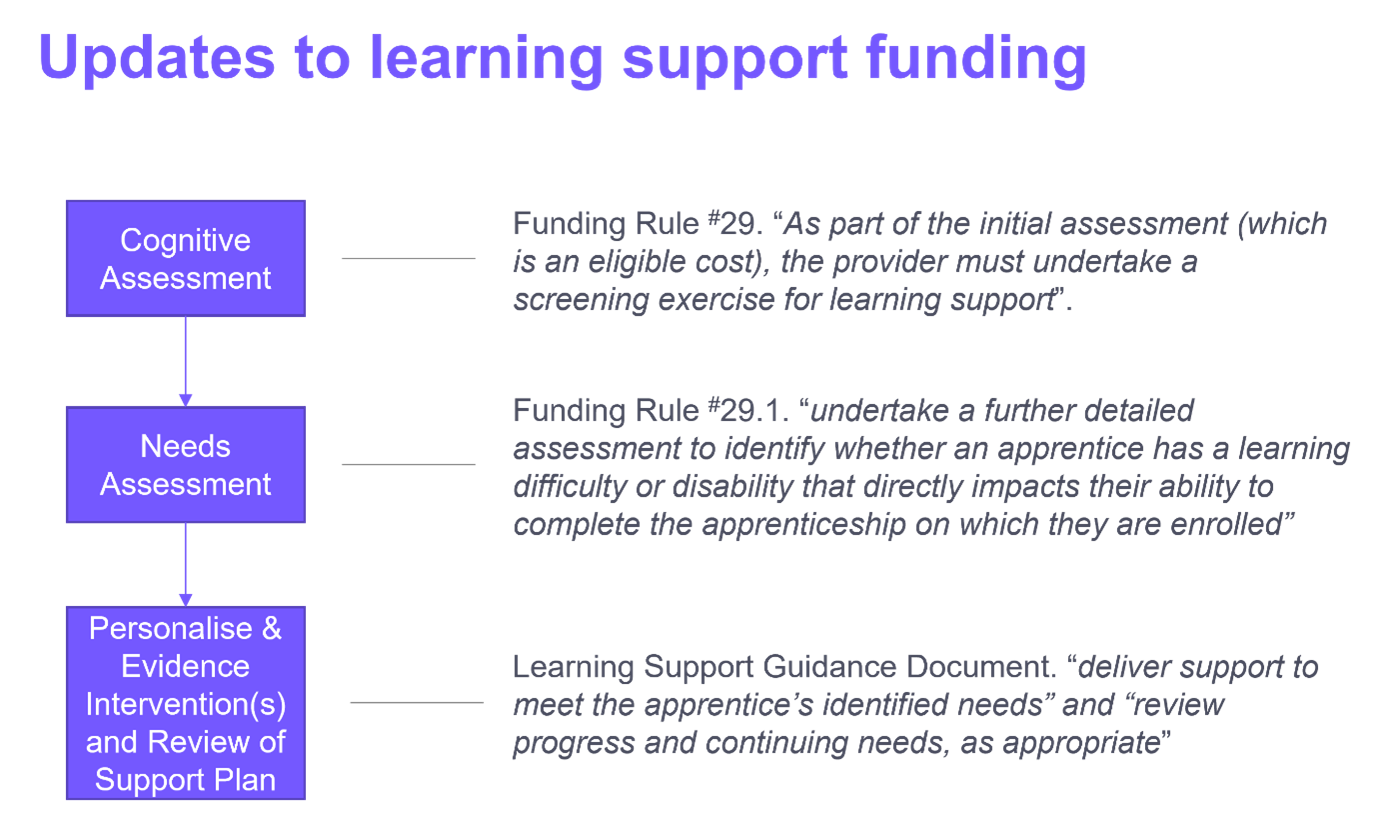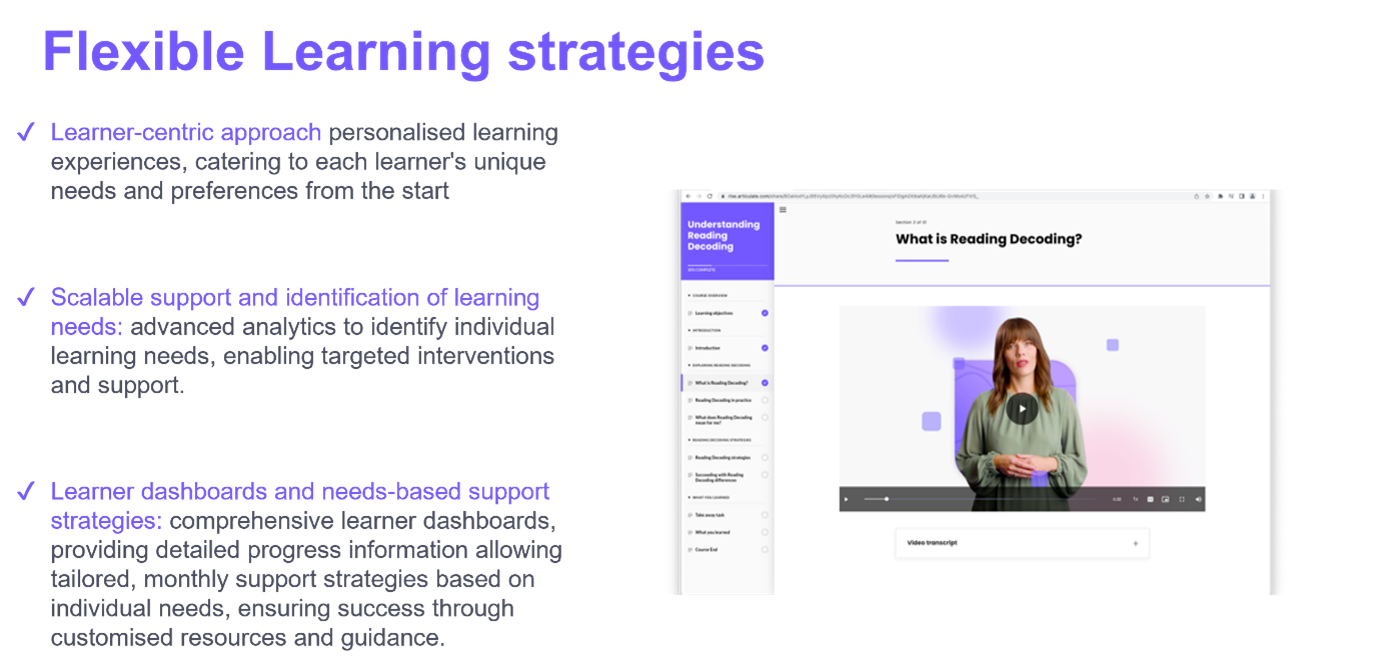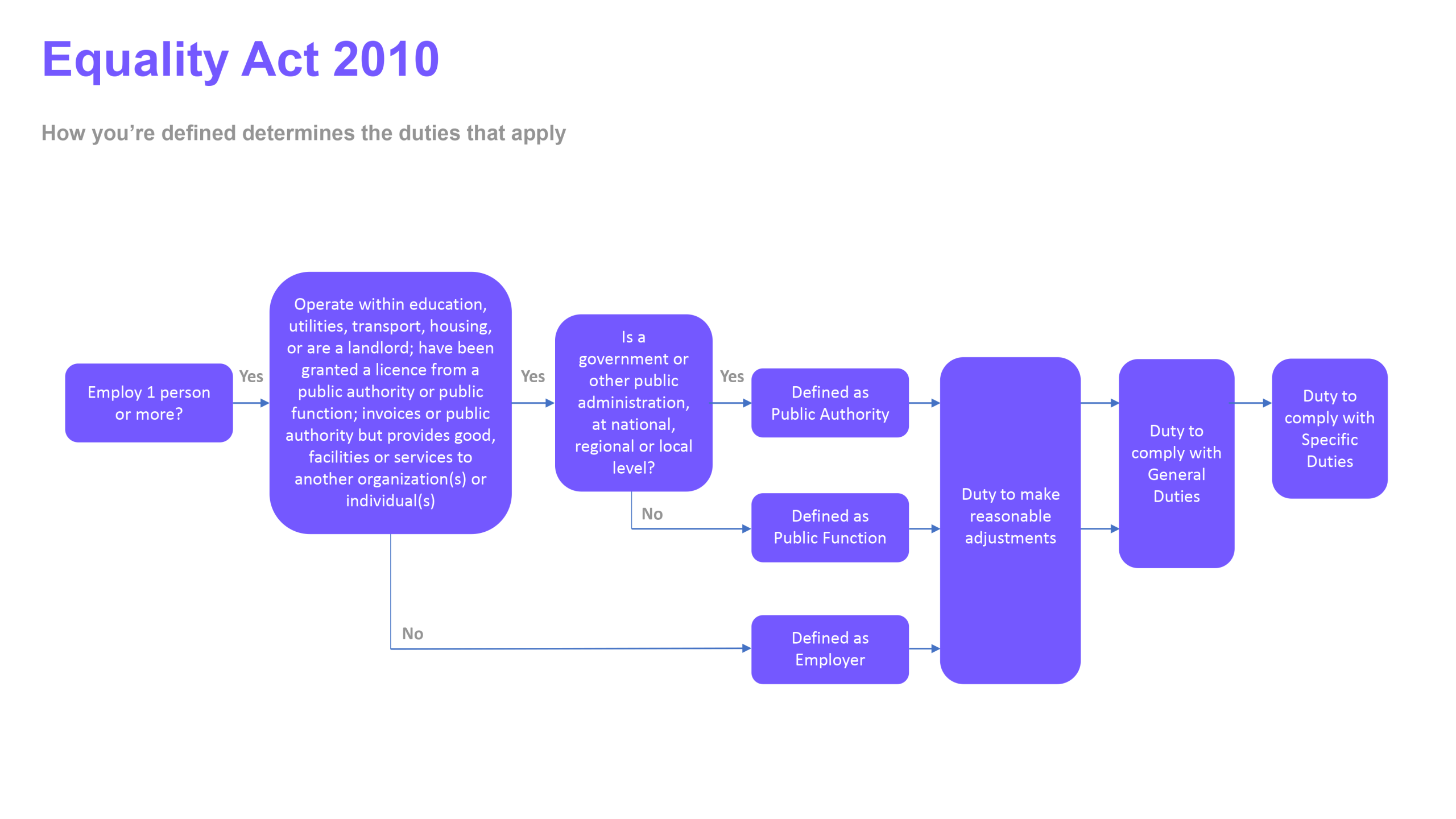The Apprenticeships Conference: The (not so) secret to delivering quality apprenticeships
A shift is taking place.
You may know this already. You may have been one of those pushing for change this whole time.
Every time the apprenticeship sector gets together, more and more people are talking about the same thing:
Inclusive apprenticeships.
The tagline for The Apprenticeships Conference was “to explore the future of delivery, quality, access and completion for apprenticeship programmes at all levels.”
Even if you’re not directly talking about inclusivity, the outcomes providers want to achieve rely on understanding what their learners need and supporting their individual journey into the workplace.
Providers and industry bodies are taking more direct action.
The government is reforming learner support.
Ofsted requires SEND support within Outstanding criteria.
More people are sharing their experiences and speaking out against unfair treatment.
And staff are more aware of neurodiversity, although not always trained enough to build confidence.
It’s no secret that a lack of learner support leads to increased dropout and poor achievement rates.
The National Achievement Rates Tables (NARTs) show in no uncertain terms that learners with identified learning difficulties are less likely to achieve and more likely to drop out.
These widespread sector problems can be solved by taking a more inclusive approach.
As a headline partner of The Apprenticeships Conference, the Cognassist team took part in the day’s conversations and our CEO hosted a workshop and discussion on “Quality Outcomes Through Learner Neuro-Inclusion.”
We want to shed some light on the key discussions at The Apprenticeships Conference and look at meaningful solutions in four key areas:
- Apprentice lifecycle
- Focus on quality
- Managing inflation
- Next steps on productivity
Apprenticeships are a critical avenue for social mobility and increasing our economic prosperity. All learners deserve to achieve their ambitions, and it’s our collective job to help them get there.
#1 Apprentice lifecycle
“Examine the next steps in enhancing apprentice uptake, driving progression and improving completion rates.” – The Apprenticeships Conference
Your apprentice lifecycle must consider inclusivity.
Are you creating accessible opportunities?
Are you getting to know your apprentices and creating accurate starting points?
Are you creating individualised learning plans including reasonable adjustments when required?
Are you adapting your delivery and support when necessary?
Our CEO, Chris Quickfall, outlined the key legal responsibilities that providers have under the Equality Act 2010.
The duty to make reasonable adjustments is a requirement of all education providers and employers, regardless of whether they also act as a public authority or public function.
Reasonable adjustments can be applied to learning and assessments, which look at assistive tools, extra time, coping strategies or different ways of approaching learning.
Cognassist takes a rigorous approach to understanding learning needs, empowering enrolment teams, learners, tutors, learning support staff and end point-assessment organisations with evidence-based tools.
We’ve seen what works and the tools that drive positive outcomes:
- Staff training for tutors, managers and MIS teams
- Cognitive assessment screening
- Learning strategies
- Assessment adjustments
Our Cognitive Assessment Reports provide reasonable adjustments as part of initial assessment and our Monthly Intervention Reports provide a consistent evidencing framework.
Our framework specifically looks at time-based adjustments for end-point assessment and more generalised learning adjustments to deliver flexible learning plans.
Without early screening and robust reasonable adjustments processes, there’s a risk that support will come “too late” and more of your learners will struggle to achieve the best outcomes.
Every day, we talk to providers who may have gaps in their provision but who recognise that inclusivity is an ongoing mission.
Taking the time to consider wider inclusivity in your processes and apprentice lifecycle is critical to the ongoing engagement and success of your apprentices.
#2 Focus on quality
“Explore the latest insights in delivering quality apprenticeship programmes that meet Ofsted requirements.” – The Apprenticeships Conference
You can’t talk about quality without talking about Ofsted.
And you can’t talk about quality without talking about equality.
It’s all connected.
Ofsted are hugely focused on improving outcomes for some of the most disadvantaged learners.
Hidden learning difficulties create huge barriers in education, and it’s easy for learning to become frustrating or even traumatic for learner who don’t have the right support in place.
In his workshop, Chris talked about the disparity in declared needs versus expected population data.
Cognassist data shows that around 30 percent of learners who complete our digital cognitive assessment need additional support.
But only 17 percent of adult learners declared a learning difficulty or disability (LDD) in 2021.


Many learners worry about the stigma of disclosing a need or how it will affect their employment. Older adults may never have been assessed before. But unfortunately, the reliance on self-disclosure means learners are falling through the gaps.
As our Outstanding rated client Educationwise found out during inspection, Ofsted are actively investigating achievement data for LDD Learners.
Don’t wait to get the call before looking at your data and making the changes to help your learners achieve their maximum.
#3 Managing inflation
“Assess the impact of inflationary pressures on the market and how training providers can continue to deliver high quality programmes” – The Apprenticeships Conference
Funding is available to help deliver effective learning support.
And at times like these, government funding streams like Learning Support Funding (LSF) are a lifeline for learners.
Stewart Segal, AELP Board Member and Chair of Youth Employment UK, has previously spoken about the importance of funded learner support:
“I think we need to switch it round a bit and focus much more on what the individual apprentice needs. There’s a duty really to make sure you understand what they need, particularly if there’s additional needs and special needs, and provide that support.
“We all think that the programmes are not funded to the extent they should be funded, and yet training providers have it within their gift to claim those funds and they’re not doing so.”
Claiming Learning Support Funding is often an issue of confidence for providers.
Chris gave a run-through of the upcoming changes to LSF, which will take effect on 1st August 2023 and clarify the evidence requirements.


The biggest change is that providers must conduct mandatory screening for learning support during initial assessment, which is an eligible cost within the total negotiated price with the employer.
A further needs assessment may be required to understand how an apprentice’s learning difficulties or disability will impact their chances of completion. Importantly, this further deep dive assessment and support planning is not an eligible cost.
Lisa Smith, Risk Assurance Director at RSM UK, works with the ESFA and spoke about these changes from a risk assurance perspective:
“You can go through and do a cognitive assessment, which, as we’ve just found in relation to apprenticeships, is an expectation now as part of that initial assessment exercise when the learner first looks to enrol on the apprenticeship, and just general discussions with the learner.
“An automated assessment is a great starting point. It’s a great tool for you to start to have those further detailed discussions with the learner because they can tease out some of those hidden issues and concerns.”
With increased pressure on providers, we need to build confidence in their processes and ensure that a lack of funding does not stand in the way of delivering high quality support.
#4 Next steps on productivity
“Evaluate the place of apprenticeships within a wider skills ecosystem in tackling the UK’s productivity crisis.” – The Apprenticeships Conference
Inclusivity doesn’t seem like a productivity measure. However, workplace data consistently shows that diverse teams are more productive and innovative.
Employers are desperate to attract and retain neurodiverse talent and apprenticeship providers have the opportunity to bring them this talent.
The business world is seeing the benefits of neurodiversity.
Embracing different thinkers in education has a massive ripple effect in the workplace.
You are the change makers.
The next steps on productivity involve understanding how each of us thinks, learns and works best.
Everyone is different, and what if education taught people more than ‘what they need to learn’ and considered ‘how they need to learn’?
Chris is no stranger to this type of thinking.
He received a dyslexia diagnosis at university, and it changed his perspective and gave him a framework to create his own coping strategies.
He spoke about how Cognassist’s framework, taken from his own experiences, aims to support other learners like himself and empower a productive and inclusive future.
Our framework specifically looks at time-based adjustments for end-point assessment and more generalised learning adjustments to deliver flexible learning plans.


Cognassist has a unique mindset. Our success is driven by neurodiversity.
We are proudly neurodifferent.
We use our expertise to empower positive conversations and perspectives on neurodiversity. We help tutors adapt and create flexible support around the learner. Most of all, we provide learners will the tools they need to thrive.
It’s Cognassist’s mission to help diverse minds thrive and build a neuro-inclusive future.
When you deliver inclusive apprenticeships, you deliver quality – quality that benefits learners, employers and providers alike.
Everybody wins.
Learners get the support to achieve the best outcomes.
Employers get diverse talent to empower their productivity and culture.
Providers get better at delivering equal opportunities and demonstrating their impact.
If we took one thing from The Apprenticeships Conference, it’s how many people working in the sector feel the same way.
There are so many ways to deliver apprenticeship standards, why not do it in a way that benefits the greatest number of people possible?
The future is neuro-inclusive
Get in touch to see how we can improve outcomes for your learners.
